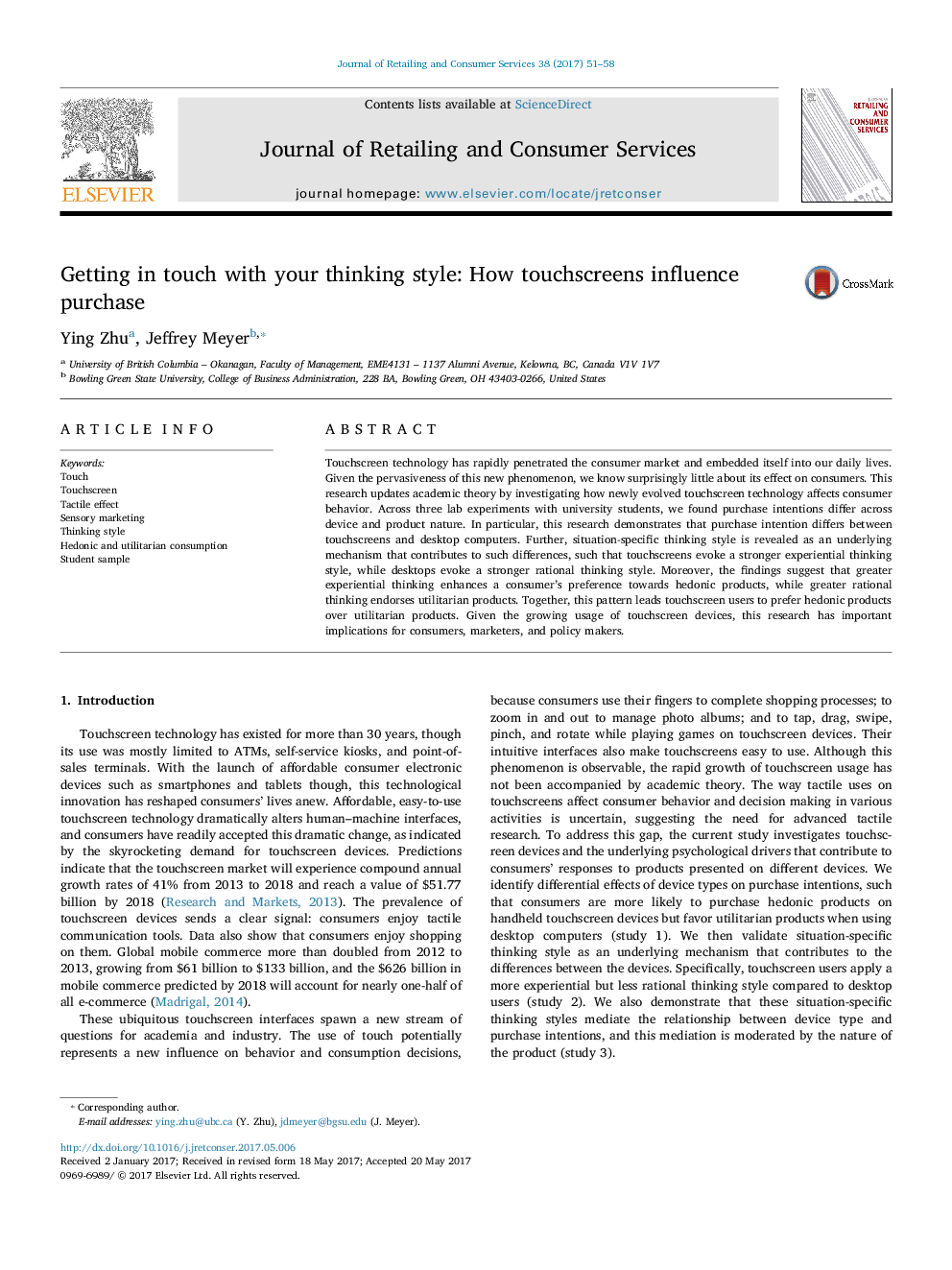ترجمه فارسی عنوان مقاله
در تماس با سبک تفکر خود: چگونه صفحه نمایش لمسی بر خرید تاثیر می گذارد
عنوان انگلیسی
Getting in touch with your thinking style: How touchscreens influence purchase
| کد مقاله | سال انتشار | تعداد صفحات مقاله انگلیسی |
|---|---|---|
| 126452 | 2017 | 8 صفحه PDF |
منبع

Publisher : Elsevier - Science Direct (الزویر - ساینس دایرکت)
Journal : Journal of Retailing and Consumer Services, Volume 38, September 2017, Pages 51-58
ترجمه کلمات کلیدی
دست زدن به، صفحه لمسی، اثر تاکتیکی، بازاریابی حسی، سبک فکر کردن مصرف هادونیک و سودآور، نمونه دانشجویی،
کلمات کلیدی انگلیسی
Touch; Touchscreen; Tactile effect; Sensory marketing; Thinking style; Hedonic and utilitarian consumption; Student sample;
ترجمه چکیده
فن آوری صفحه لمسی به سرعت به بازار مصرف کننده نفوذ کرده و خود را در زندگی روزمره خود قرار داده است. با توجه به فراوانی این پدیده جدید، ما به اندازه کافی در مورد تاثیر آن بر مصرف کنندگان می دانیم. این تحقیق به بررسی تئوری های آکادمیک با بررسی اینکه چگونه فن آوری صفحه نمایش لمسی به تازگی پیشرفت کرده است بر رفتار مصرف کننده تاثیر می گذارد. در سه آزمایش آزمایشگاهی با دانشجویان دانشگاه، ذرات خریدی در طبیعت دستگاه و محصول متفاوت است. به طور خاص، این تحقیق نشان می دهد که قصد خرید متفاوت است بین صفحه های لمسی و رایانه های رومیزی. علاوه بر این، سبک تفکر خاصی به عنوان یک مکانیزم پایه ای است که به چنین تفاوت هایی منجر می شود، به طوری که صفحه های لمسی سبب شکل گیری سبک تفکر تجربی بیشتری می شوند، در حالی که دسکتاپ از یک سبک تفکر منطقی قوی تر است. علاوه بر این، یافته ها نشان می دهد که تفکر تجربی بیشتر باعث افزایش اولویت مصرف کننده در مصرف محصولات هودونیک می شود، در حالی که تفکر عقلانی بیشتر از محصولات سودمند پشتیبانی می کند. با هم، این الگوی کاربران کاربران صفحه لمسی را ترجیح می دهد محصولات ترفندهایی را نسبت به محصولات سودمند ترانه ترجیح دهد. با توجه به استفاده روزافزون از دستگاه های لمسی، این پژوهش پیامدهای مهمی برای مصرف کنندگان، بازاریابان و سیاست گذاران دارد.

